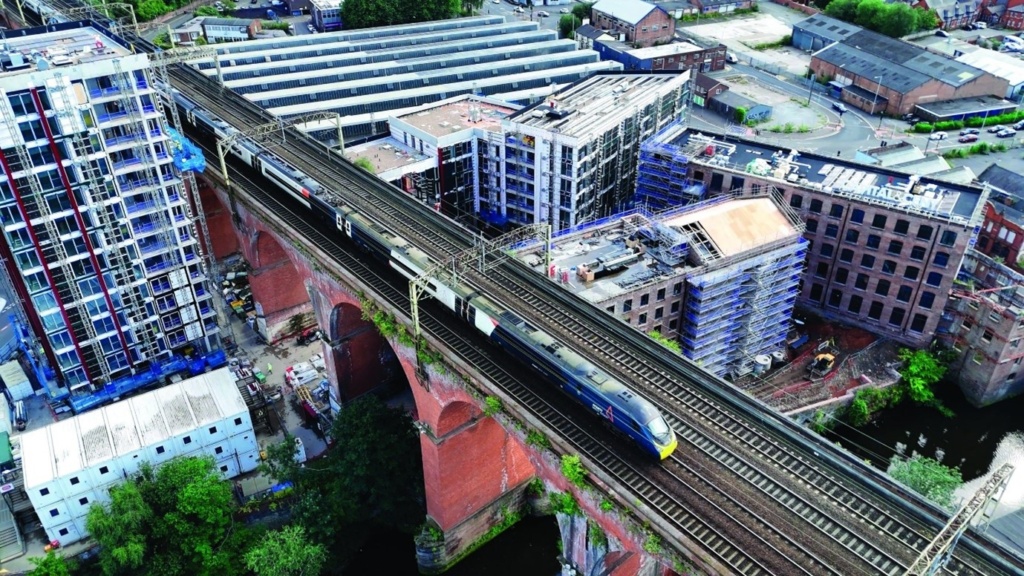Thursday 5th September
For those who have been watching Welcome to Wrexham, Ryan Reynolds’ documentary series on the town’s football club, the frequent references to the British planning system might come as a surprise. The series follows Reynolds and his business partner, producer Rob McElhenney, as they navigate the complexities of owning a football club and engaging with the local community.
Their journey is heartwarming, showcasing their growing and seemingly genuine affection for Wrexham and its people. However, the obstacles they face are striking. When they attempt to redevelop the stadium, they encounter what Reynolds calls a “thick buttress of bureaucracy” within the planning system. McElhenney describes it as presenting “hurdles for hurdles’ sake”.
While their comedic frustration provides laughs, it underscores a serious issue. Reynolds and McElhenney, international investors with a combined net worth of over £400m, want to invest and bring about social good. Yet, the planning system risks thwarting their efforts.
Unlike Reynolds and McElhenney, institutional investors – recognising the increasing importance of ESG factors – must also focus on returns in the social housing sphere and cannot afford prolonged delays.
To attract private capital into the sector, among other things, we need a simplified planning process. The new government has rightly made this a priority, aiming to reduce bureaucratic hurdles and speed up planning decisions.
The urgency is clear. Council spending on hotels for homeless households has tripled in the past five years, soaring from £81m to £241m.
In London, authorities collectively overspent on their homelessness budgets by £208m last year, with spending on temporary accommodation rising by 25% from April 2023 to April 2024 alone. Newham Council has repeatedly sounded the alarm over spiralling costs, allocating a further £18.5m to its temporary accommodation budget this year, but predicting costs will top £40m. The authority says the issue could soon account for a third of its total budget.
Housing is clearly a key issue for the new government, but significant hurdles remain. Nimbyism and development protests, especially with plans to reclassify some green-belt land as ‘grey belt’, are growing concerns. Politicians will face pressure from constituents to preserve these areas.

While 11 out of 12 metro mayors in England are Labour, the new administration shouldn’t underestimate the impact of local pressures. Take Stockport. The Financial Times’ northern correspondent recently noted that, despite the area’s proximity to Manchester and the benefits it reaps, the town and council – an authority of no overall control – have a complicated relationship with housebuilding.
Having dropped out of the Greater Manchester Spatial Framework over green-belt concerns – despite the combined authority’s revisions to focus on brownfield – its recently published draft local plan would meet only 85% of its housing need. This proposal is unlikely to satisfy, given the strident rhetoric from Westminster.
Similarly, at Salford Quays, one of the UK’s most successful regeneration projects, a resident Liberal Democrat councillor recently raised concerns about overdevelopment. While his points – made to the Local Democracy Reporting Service – about the need for supporting infrastructure and services are valid, his focus on the potential loss of character for the area seems somewhat misplaced. The challenge of balancing much-needed development with maintaining the area’s unique identity is significant, but not insurmountable.
Clearly, political and community battles loom, alongside the complex task of unpicking planning law. To address the housing crisis, a collaborative approach is essential. Investors, government, developers, councils and regional politicians must work together. The government needs to hold its nerve, while local administrations of all colours must be realistic about the necessary actions, showing strong leadership in the face of community sentiment.
With more than 150,000 children in temporary housing in the UK, the urgency for more affordable housing is undeniable. We can no longer afford to delay.

Claire Kober
Managing Director (Homes), Pinnacle Group
This article was originally featured in Property Week, on 5th September 2024.